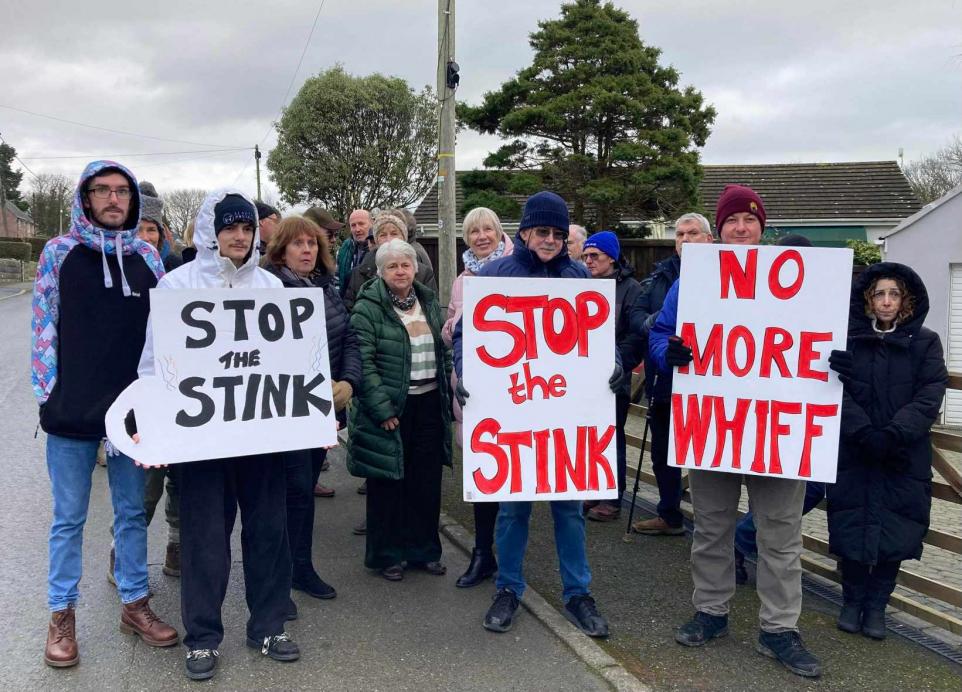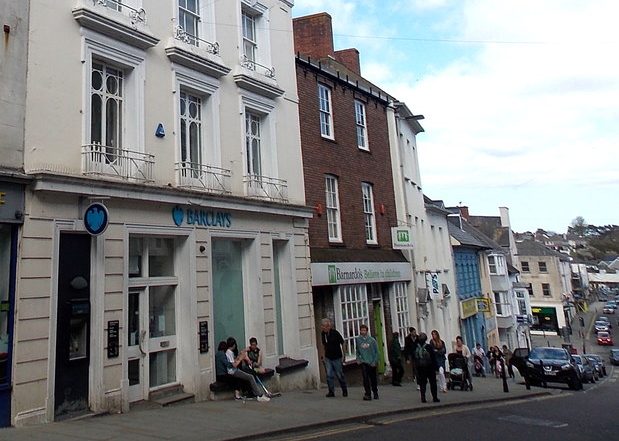Politics
Cameron’s hamstrung Exchequer

Pledges cost money: David Cameron’s hamstrung Exchequer
THE NATIONAL tabloids are often full of foaming at the mouth headlines about ‘scroungers’, stories about ‘dole fiddlers’, and tales expressing horror that some people pretend to be ill to get disability benefits.
That is nothing new and it is conspicuous that there is a spike in such stories (particularly involving those from outside the UK) when governments of whatever complexion have announced ‘welfare reform’ (cuts) ‘designed to deliver to those most in need’ (not those in most in need).
WHERE THE MONEY GOES: PENSIONS
Welfare spending makes up around 35% of the UK Government’s spending and totals over £260b per year. However, ‘welfare’ is a broad term and only a fraction of welfare benefits spending is on unemployment benefits.
The largest amount paid out in welfare benefits is for pensions and the Office for National Statistics’ last available figures show that £108b of the £258b welfare spend in 2014/15 went on pensions.
In fact, total pension spending has increased by 25% since the financial year 2010/11. This isn’t surprising as life expectancy has been steadily increasing, so state pensions are being claimed for longer. The remaining life expectancy for someone aged 65, in 2016, is 21 years for a man and 24 for a woman.
What that means is that the idea that people have ‘paid in what they get out’ is increasingly untrue. Some of those claiming pensions will have contributed comparatively little to their state pensions, whereas actuarial calculations on future pension need carried out when older pensioners were working would have been predicated on them dying within a few years of retirement. The fact that we are all living longer means that the proportion spent on pensions is likely to continue to rise just at the point when the working age population which funds the spending is in decline.
WHERE THE MONEY GOES: CARE AND DISABILITY
£29 b is spent on personal social services. About £41 b goes on benefits for people who are ill or disabled, while £10 b goes on elderly care payments. Disabled people are more likely to live in deprived areas and work in routine occupations. In the 2011 Census, 18% of people (10 million) reported some form of disability.
As for elderly care, there were 9.2 million people aged 65+ in 2011, making up 16% of our population. The care home population has actually stabilised over the last decade at around 300,000 people, but there has been an increase of 600,000 people (likely family members) providing unpaid care between 2001 and 2011. In total, 5.8 million (10%) provided unpaid care in England and Wales in 2011, and the majority were of working age.
W HERE THE MONEY GOES: POVERTY AND THE UNEMPLOYED
£44 b goes on family benefits, income support and tax credits. This includes benefits such as child benefit and support for people on low income. Around £3.5 b goes to the unemployed.
There were around 3 million people in in-work poverty in 2013. This meant their household income (adjusted for household size and composition) was below the poverty threshold and were in employment themselves. The 10% of households with the lowest disposable income spent an average of £196 a week in 2013. Of this, half (£98) was spent on food and non-alcoholic drinks, transport, housing (including net rent), and household fuel and power.
As for out of work people claiming Jobseeker’s Allowance and Universal Credit, there were 760,200 people claiming these benefits in January 2016. This number has decreased by 11.2% compared with a year earlier
WHAT ABOUT FRAUD?
The notion, often pushed by the tabloids, is that there is a massive amount of benefit fraud. A poll carried out by the TUC in 2012 revealed that British people believed that 27% of benefits were claimed fraudulently.
To describe that as a ‘wild overstatement’ does not do how wrong it is justice. It seems to be one of those figures arrived at on the basis that ‘everybody knows’, rather than being remotely founded in reality.
The actual level of all fraud in the UK’s welfare benefits system was 0.8% in 2014/15.
While that is the amount of detected fraud, to suggest that it is completely out of line with actuality is to ignore the fact that the UK government employs 12 times as many benefits fraud investigators than it has tax fraud investigators.
The UK loses six times more through tax evasion and aggressive tax avoidance than the total value of fraudulent welfare benefit claims. Moreover, the UK fails to collect £34b in tax each year. And that is providing you accept the UK government’s figures, which are disputed by some economists as a wild underestimate.
While benefits fraud is an issue, there is an argument that the amount of time spent on it and the amount of publicity it receives is out of all proportion to the actual value of the fraud involved.
University of Warwick political scientist Adam Taylor said: “
This isn’t to say that benefit fraud is OK or that HMRC isn’t doing anything about tax evasion. But it is wrong that the government feels it can openly threaten the poor while merely cajoling the rich. And it is sad that the tax-burdened middle class reserve their outrage for the single mother working in the cafe while lionising the rich, famous and powerful who are getting away with it, tax free.”
WHO PAYS?
Successive governments have been aware of the crisis facing benefit payments for over two decades and yet none of them has sought to do anything more than fiddle at the margins and target the most vulnerable and weakest members of society: the Cameron Government spent an enormous amount of political capital to no good end making an economically pointless adjustment to housing benefit with the hated bedroom tax. The projected savings from that policy were tiny.
In addition, the amount of direct tax paid by the working population is contracting along with the numbers of those in work and the changing profile of work economic activity.
In the past, when the welfare model was fixed, there was generally one full time bread winner per working class family in a job which lasted an entire working life. Stable incomes represented a stable and predictable tax yield. However, the change from a high labour manufacturing economy to a service-based one with lower labour requirements, altered the whole dynamic of working class life. Multiple part time jobs may reduce the number on the unemployed role, but lower income jobs pay less into the UK’s tax base.
So, the question that all governments face is how to provide people with the welfare benefits they need without upsetting voters who have to pay for them.
NO EASY ANSWER
The issue is particularly acute due to David Cameron’s 2015 promise not to raise National Insurance, Income Tax, or VAT. Where else, the question might fairly be asked, would the money come from? Especially as there is a guaranteed 2.5% increase per annum in the state pension.
Oh – and older voters and pensioners vote in far higher numbers than the young. On the basis that turkeys seldom vote for Christmas, you can guess why politicians are wary of doing anything to affect that demographic.
One thing is certain, fiddling at the margins is not enough. But whether politicians have the will to make the sort of changes needed to the UK’s tax and welfare system, is one of those questions to which there is no glib answer.
Which do you prefer, after all, higher taxes or cuts targeted at those least able to defend themselves?
News
Withyhedge Landfill faces political allegations and regulatory enforcement

STEPHEN CRABB MP has vociferously criticised the Welsh Labour Government for its management of the Withyhedge Landfill in Pembrokeshire, claiming it has turned the area into a “dumping ground” for waste from across Wales. Mr. Crabb, supported by Paul Davies MS, alleges that substantial lorries deliver waste daily to the site, causing significant distress to local residents. The MP has repeatedly written to the First Minister, demanding immediate intervention, yet claims to have received no response.
Compounding the controversy, Mr. Crabb highlighted a substantial £200,000 donation to Vaughan Gething’s recent election campaign from the landfill’s owner, questioning the impartiality of regulatory practices. Despite ongoing political efforts, Mr. Crabb asserts that resolution lies solely with the Welsh Government, which has the ultimate authority to address these grievances.
Meanwhile, Natural Resources Wales (NRW) has escalated its enforcement actions against the site’s operators, Resources Management UK Ltd (RML), amid persistent community complaints about odour and gas emissions. A recent Regulation 36 Enforcement Notice demands a series of remedial actions by RML, with deadlines stretching into May 2024. These measures focus on improving the site’s gas management infrastructure and capping exposed areas to mitigate odour issues.
Huwel Manley, Head of South West Operations at NRW, expressed understanding of the community’s frustration, emphasizing the urgency of the required actions. “We are committed to ensuring RML Ltd. deliver these actions rapidly and effectively. Continued non-compliance will lead to further measures, potentially including a suspension of the environmental permit,” stated Mr. Manley.
Pembrokeshire County Council, represented by Chief Executive Will Bramble, also voiced disappointment over the ongoing issues, affirming full support for NRW’s stringent enforcement steps. The Council and NRW are working closely to monitor the situation and have encouraged the public to report any odour incidents promptly to aid in effective resolution.
As the deadline approaches, all parties involved are under increasing pressure to demonstrate tangible improvements and ensure the health and well-being of Pembrokeshire residents are prioritised.
Politics
Barclays closure in Haverfordwest sparks calls for banking changes

A CALL for Pembrokeshire County Council to potentially change its banking arrangement with Barclays, after the bank announced it was closing its county town branch, is expected to be turned down next week.
Barclays Bank in Haverfordwest, located on the town’s High Street, is to close on May 10.
The council has had a banking services contract with Barclays since 2013, with the most recent contract – for four years – signed last May following an independent review.
Councillor Huw Murphy, in a notice of motion to be heard by Pembrokeshire County Council’s Cabinet meeting of April 22, is asking the council to review its banking arrangements with Barclays following the announced closure.
“The loss of many banking facilities within Pembrokeshire over recent years has had a detrimental impact on many town centres such as Tenby, St Davids, Fishguard, Milford Haven, Narberth, Newport and Pembroke and Pembroke Dock and will soon impact Haverfordwest with the loss of Barclays bank to the town.”
He said the loss of a branch “not only impacts upon town centres and businesses but also disproportionately impacts the elderly who are less likely to embrace on-line banking options”.
After the Haverfordwest closure was announced, a spokesperson for the bank said that the Haverfordwest branch only had 32 regular customers who used the branch exclusively for their banking and do not interact with Barclays in any other way.
A report for cabinet members says, in terms of the impact on Pembrokeshire residents, Barclays has said that it is “not leaving Haverfordwest and [will] continue to provide face-to-face support for those who need it” via community locations.
It adds: “Everything else can be done via alternative channels such as everyday transactions via the Post Office. We will be making personal contact with our regular and vulnerable branch users to discuss their options and guide them through alternative ways to bank.”
Two options were presented to cabinet following Mr Murphy’s motion, to retender the banking services contract, and, the favoured, to work with Barclays to ensure a community location is set up in Haverfordwest.
The report says the costs associated with moving to a new service provider “can be excessive and in some cases greater than the cost of the annual contract value,” adding: “Whilst the costs can vary between local authorities it can be in excess of £50,000.”
For the second, favoured option, the report says: “An integral part of the branch closure communication, Barclays advised that they will be setting up a community location in Haverfordwest.
“Whilst this is a change to how Barclays currently operate in Haverfordwest, this concept mirrors the successful implementation of a hub located within The Giltar Hotel in Tenby that operates twice a week.”
It adds: “Discussions have commenced with Barclays to see what the council can offer in terms of locations.”
Cabinet members are recommended to back the second option.
Community
Burned down hotel to be used for social housing

A SCHEME to build 38 affordable and social housing units on the site of the fire-ravaged former Cleddau Bridge Hotel, Pembroke Dock is expected to be backed by senior Pembrokeshire councillors next week.
Members of Pembrokeshire County Council’s Cabinet, meeting on April 22, are recommended to support a contract with developer Castell Group Ltd for the mix of affordable homes and social housing units at the site, with the actual contract details expected to be discussed in a private and confidential session.
A report for members ahead of the meeting says: “The potential development site on the former Cleddau Bridge Hotel site, Pembroke Dock has been up for sale for some time, and its purchase by Castell Group Ltd (‘Castell’) is now imminent.
“Following completion of their purchase, Castell will submit an application for planning consent to develop the land for affordable and social housing. It would see the development of a high-profile site with visual impact on surrounding areas that has sat dormant for many years.”
Castell has approached the housing service to determine whether there is an interest in working with them to bring forward the development as a housing site, the report says.
Castell Construction Ltd, the delivery arm of Castell, specialises in the construction of affordable / social housing, typically for registered social landlords across south Wales.
An initial proposal says the development, if backed, would see 12 one-bedroom flats, 15 two-bed houses, five three-bed, two four-bed, and four two-bed bungalows, the report adding: “This site would help towards both the council’s 300 new home target and also Welsh Government’s 20,000 new homes target.”
It adds: “The proposal by Castell Construction Ltd is for a development programme of 18 months following planning permission being secured. Castell Construction Ltd estimate commencing the development in March 2025, which would mean completion in autumn 2026.”
Delegation of the decision to enter into the works contract to the Director for Social Services and Housing is sought, and Cabinet is also being asked to delegate the decision to proceed with the land acquisition to the Assistant Chief Executive.
The development package would be part-funded from the housing revenue account, the remainder from the Social Housing Grant and/or second homes premium for affordable housing if it becomes available for the Housing Service to use in this manner.
The proposals would be subjected to an as-yet unsubmitted planning application; if granted Castell Construction Ltd hopes to start the development in March 2025, finishing in autumn 2026.
In 2023, an unrelated application by a different applicant, to demolish the remnants of the hotel and replace it with a care home was approved.
In a prime location at one of the entrances to Pembroke Dock the former Cleddau Bridge Hotel has been derelict since a fire in March 2019, which brought emergency services from as far afield as Ammanford, Aberystwyth and Swansea.
Mid and West Wales Fire and Rescue Service previously said the fire was started by a deliberate act.
Following a fire investigation, Dyfed-Powys Police said they found there to be insufficient evidence to identify a suspect.
-

 Business4 days ago
Business4 days agoBluestone National Park Resort payments expected to end
-

 Community6 days ago
Community6 days agoThe Harbourmaster: Special rail excursion draws crowds to Milford Haven
-

 News5 days ago
News5 days agoDragon LNG ‘monitoring’ scrap car blaze in Waterston
-

 News6 days ago
News6 days agoSearch for Luke, 19, reported missing in the Pembroke Dock area, continuing
-

 News3 days ago
News3 days agoSearch for missing teenager Luke continues at Pembroke Dock
-

 Crime4 days ago
Crime4 days agoEstate agents admit health and safety failings following fatal market incident
-

 News3 days ago
News3 days agoMan jailed after scarring police officer in Narberth altercation
-

 News19 hours ago
News19 hours agoPolice issue update on the search for Luke, missing from Pembroke Dock

























